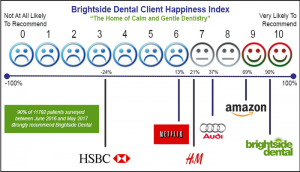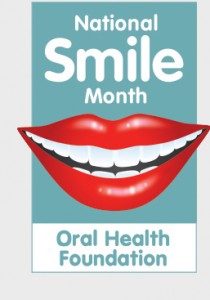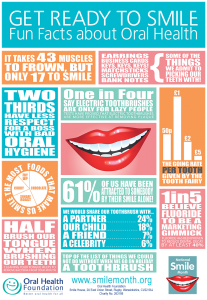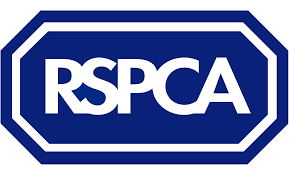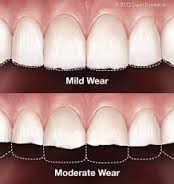Is your child playing with the toothbrush rather than getting any actual brushing done? Is the toothpaste falling off the bristles every time? Are they insisting on eating sweets before bedtime? Every parent worries about about their child’s teeth, and no parent wants their child’s beautiful smile to be ruined by cavities!
But, children do get cavities frequently. In fact, 42% of children aged between 2 and 11 have dental cavities in their primary teeth (milk teeth), and 21% of children aged 6 to 11 have cavities in their permanent teeth. Tooth decay occurs when teeth are exposed to acid on a regular basis, most often when eating sugary foods and drinking sugary drinks. Minerals start to be eroded, and eventually a cavity forms. 
Fortunately, preventing tooth decay isn’t as much hard work as you think. Dr Ketan Shah from Brightside Dental shares his ten top tips for keeping your child’s teeth cavity free.
- Teach Your Child About Cavities
Step one to ensuring your child doesn’t get a cavity, is to teach them what a cavity is as soon as they’re old enough to learn. Sometimes this is as simple as drawing a picture with sweets and fizzy drinks, and colouring a tooth in black. You don’t need to scare your child, just let them know that teeth can get dirty and it’s important to keep them clean.
- Brush Your Child’s Teeth with Them Twice a Day
Everyone, children included, should brush their teeth twice a day: once in the morning and once before bed. Young children cannot sufficiently clean their teeth by themselves, so until your child is 7 or 8 years old, you will need to help them brush. Try brushing your child’s teeth first, then letting them finish off so they can build their independence.
- Use Fluoride Toothpaste
By the age of 2, you can introduce your child to fluoride toothpaste, provided that the amount of fluoride is less than 1,500 ppm. Fluoride is a natural mineral which is found in water, soil, and rocks. It prevents plaque from forming acids which erode enamel and decay teeth. It also strengthens areas of the teeth that have been weakened already. The simplest way to choose is to check the age guidelines on the toothpaste tube.
- Cut Down on Sugary Foods and Drinks
Most parents know this, but it’s really important to limit your child’s intake of sugary foods and drinks. When we have food or drinks that contain sugar or starch, the bacteria in our mouth turns it to acid. The acid then attacks our enamel. Cut down your child’s consumption of sweets, cakes, fizzy drinks, and even fruit juice.
- Limit Snacks Between Meals
Although our saliva goes some way to defending our teeth from the acid attacks, if we eat too many snacks throughout the day, the acid will win. Try to stop children from snacking too often between meals to give their teeth a chance to repair themselves. If they do snack, try to encourage them to snack on vegetables, like carrot sticks or cucumber slices.
- Don’t Let Your Child Eat or Drink at Bedtime
Be strict: don’t let your child eat or drink after they’ve brushed their teeth ready for bedtime (except for water). Our saliva flow decreases when we go to sleep, so at night our teeth are at their most vulnerable to acid attacks.
- Take Your Child to the Dentist for Regular Check-Ups
You should take your child to visit the dentist about once every six months(or as recommended by the dentist). Not only is the dentist able to check on the health of your child’s teeth and gums, but they can catch any signs of decay early on. Dentists are also there to help your child learn how to take care of their teeth and will be able to give them some top tips on effective brushing – if they don’t listen to you, hopefully they’ll listen to their dentist!
- Talk to Your Dentist about Sealants
If you’re really concerned about your child’s permanent teeth, talk to your dentist about dental sealants. Sealant are thin, plastic coatings that cover the surfaces of the back teeth to prevent germs and food particles from getting stuck in the grooves. They can help to reduce the risk of dental decay, in conjunction with following the other advice in this list.
- Don’t Be Scared of the Dentist!
An estimated 9-15% of people avoid having a dental check-up due to fear of the dentist. Even if you yourself aren’t all that keen on sitting in the dentist chair, don’t let your child know that. Talk about the dentist in a positive way, and focus on the fact that they are there to help. Taking your child along to the dentist, even if they’re not having a check-up themselves, is a great way to introduce them to the strange sights and sounds of the dental centre. If you do this from a young age, your child is less likely to be scared of visiting the dentist when it’s their turn for a check-up.
- Set a Good Example
Children learn through copying others, especially their parents. If you don’t brush your teeth twice a day, your child won’t want to either. Set a good example by keeping up good oral health practices yourself and your child will want to do the same.






